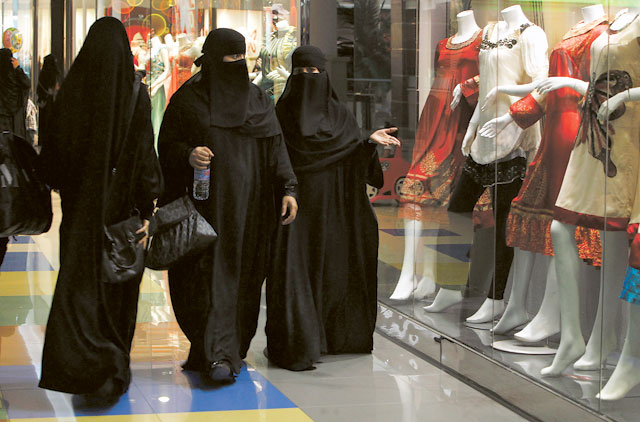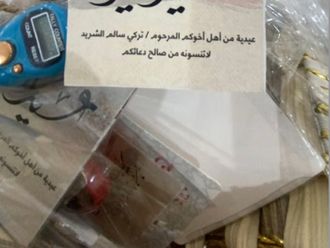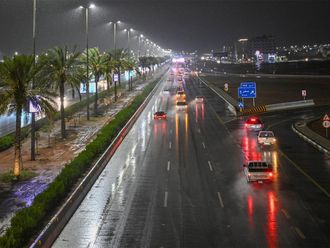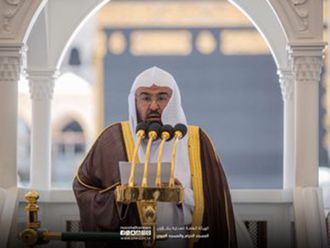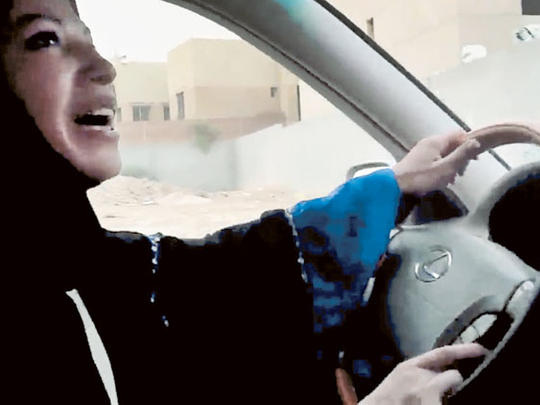
Dubai: Women in Saudi Arabia are being pulled in opposite directions. They are banned from driving and at the same time the conservative kingdom plans to create a department within the organisation to recruit women soldiers.
They were given the right to vote and run in municipal elections three years, and were given the right to be appointed to the kingdom’s consultative Shura Council. But Saudi Arabia will be the only country to send a team to the 2012 Olympics without a woman member.
A video showing a woman wearing nail polish in a mall was posted on YouTube last month. It shows the woman arguing with the religious police who ordered her to leave the mall because she was wearing nail polish. “I am staying, and I want to know what you are going to do about it,” she was heard as saying. “You are not in charge of me.” The Saudi women called the police to talk to the members.
The video has 1,800 “likes” and 7,000 “dislikes”.
“Saudi politicians are not making women’s issues a priority, especially if they contradict with their alliances and loyalties,” said Saudi writer and activist Hala Al Dossary.
Giving women issues priority could mean “creating a front of conflict, so it is better [politician believes] to keep the situation as is,” Hala told Gulf News, describing the situation of the Saudi women as “frozen”.
Early last April, Prince Nawaf Bin Faisal of the Saudi Olympic Committee, said the kingdom does not approve sending female athletes. However, he said women could compete in the Olympics on their own, but not as part of the official delegation. This would pave the way for a repetition for a similar arrangement to the Youth Olympics.
Saudi equestrian competitor Dalma Rushdi Malhas, 18, won the bronze medal in show jumping in the games two years ago in Singapore. She was not nominated by her country. Rather she was invited by the International Olympic Committee.
“That was a smart way to get out of the problem,” Hala said of the way the authorities handled the problem.
“When they [Saudi authorities] are officially asked from outside about women’s participation, they would reply ‘we have no problem with that’. But when they are asked from inside by the opponents to the move, whom they don’t want to create problems with, they would say, she is not travelling as part of the delegation.”
Earlier, the International Olympic Committee had requested Saudi Arabia, Qatar and Brunei to include women in their teams to London.
“Unfortunately, Saudi women’s issue became a political issue,” said Saudi columnist Badria Al Bisher. In some cases, women’s rights are being “sacrificed with” to gain the support of extremists, she added.
Extremists represent a segment, but not all of Saudi society, Saudi women activists stressed.
They “represent the most influential figures from the people on decision making.”
“The religious trend is very powerful, and is the most prominent in keeping its communication channels open with the authority. They pour the royal court with their correspondences and demands,” said Hala.
Earlier this year, Saudi King Abdullah Bin Abdul Aziz’s appointment of a moderate to head the religious police raised the hopes of a more lenient attitude from them.
Women constitute nearly 45 per cent of Saudi’s 26 million population made up of 20 million Saudi nationals and 6 million expatriates.
But the kingdom, the biggest oil producer and exporter in the world, was ranked as 129th out of 134 countries for gender parity in the World Economic Forum 2010 Gender Gap Report.
“Saudi women have many problems,” said Badria. “First, there is the problem of non-existent laws, including the civil status laws which usually affect all women. Secondly, there are no equal opportunities between men and women in education and work.”
An example of the shortcomings of the civil status laws is the absence of a clause which bans the marriage of 10-year-old girls, activists say.
Child marriage is believed to be an obstacle to women’s education. Many girls drop out of schools around the age of puberty, researchers say. Female literacy is estimated to be 70 per cent compared to male literacy of 85 per cent
Twenty-one per cent of Saudi women are in the workforce.
A third problem for Saudi woman is that she is not allowed to drive, and “this affects negatively her mobility and stops her from getting job opportunities,” Badria said.
“A woman who doesn’t drive can’t go to college, or send her children to school. And when she gets a job, the first excuse she uses, nobody can give me a ride …. as if women have become handicapped,” Badria added.
Saudi women rely on male relatives or drivers. But not all families can afford to hire drivers. This is the argument Saudi women use to be allowed to drive. The other is related to safety and security.
But the opponents say, allowing women to drive will lead to a decline in moral values and endanger women’s life.
Segregation of sexes is strictly observed. Most offices, banks, and universities have separate entrances for men and women. By law, there should be separate sections at all meetings and gatherings, including marriages and funerals. Public places, including beaches and amusements parks are segregated.
Efforts by women to get driving rights have been unsuccessful. Last year’s attempt by some, including Manal Al Sharif, ended up with a brief arrest and signing a legal document that they will not try it again.
Recently, Okaz newspaper quoted Prince Mitaab Bin Abdullah, the head of the Saudi National Guard, saying a new study had been submitted to recruit female soldiers in the Saudi National Guard.
The announcement came after the Saudi labour ministry implemented a royal decree ordering that only women be employed in shops dealing with lingerie — part of efforts to provide more job opportunities to Saudi women.
However, Hala described the issue of women in lingerie shops as a topic that does not create argument.
“But when there is a debatable and problematic issue, it is usually kept as is for many years without any decision, such as the issue of driving and women athletes.


